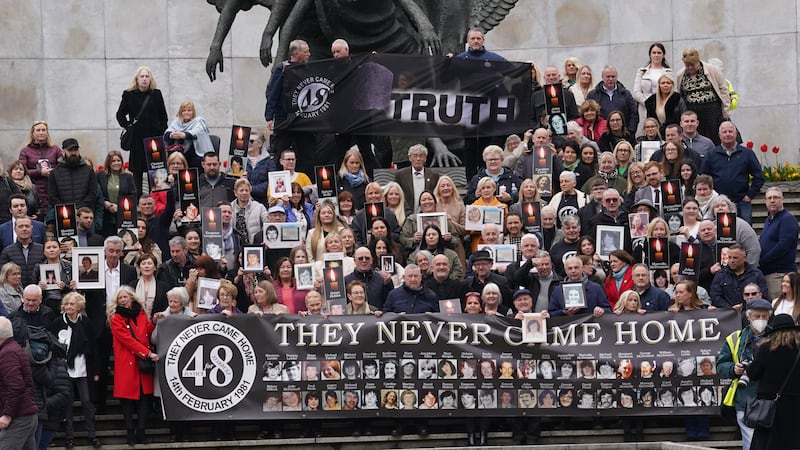The horrific killing of Michael and Marjorie Cawdery, both aged 83, at their Portadown home in May 2017 was an act of appalling brutality that caused widespread shock.
Thomas McEntee (41), a paranoid schizophrenic, was given a life sentence after admitting the manslaughter of the elderly couple whom he had killed in a frenzied knife attack.
It transpired that McEntee had sought medical help in hospitals on four separate occasions in the days leading up to the attack.
He had been seen naked walking in Newry on the day of the killings and presented himself to Daisy Hill Hospital. He was taken from there to Craigavon Area Hospital but was not detained under mental health legislation and left A&E while waiting to be assessed. A short time later he entered the Cawdery family home where he stabbed the couple.
Given the circumstances of this crime, an investigation known as a serious adverse incident (SAI) was ordered by the southern health trust which concluded there were 'no factors' in the health service's handling of McEntee that 'caused or influenced' the killings.
However, the couple's daughter Wendy Little Cawdery and her husband Charles Little were deeply unhappy at this review which they described as a 'shambles'.
They insisted on a second independent probe which came up with a very different conclusion, finding that the killings 'could not have been predicted but could have been avoided.'
This is a profoundly difficult case in a number of respects.
From the point of view of the family, they have had to battle the health service to get to the truth behind the deaths of their parents.
Their daughter said the process she has been through has severely compounded her distress, revealing that the family did not know the first SAI had been ordered nor were they interviewed as part of it.
It is worrying that the first SAI was so inadequate as this is the mechanism used by the health service to review and learn from the most serious incidents that take place under its watch.
It cannot be acceptable that a bereaved family has to struggle for information they are entitled to receive.
In line with the family's wishes, the second report should be published while the health authorities need to demonstrate that it is finally embracing a culture of openness.






